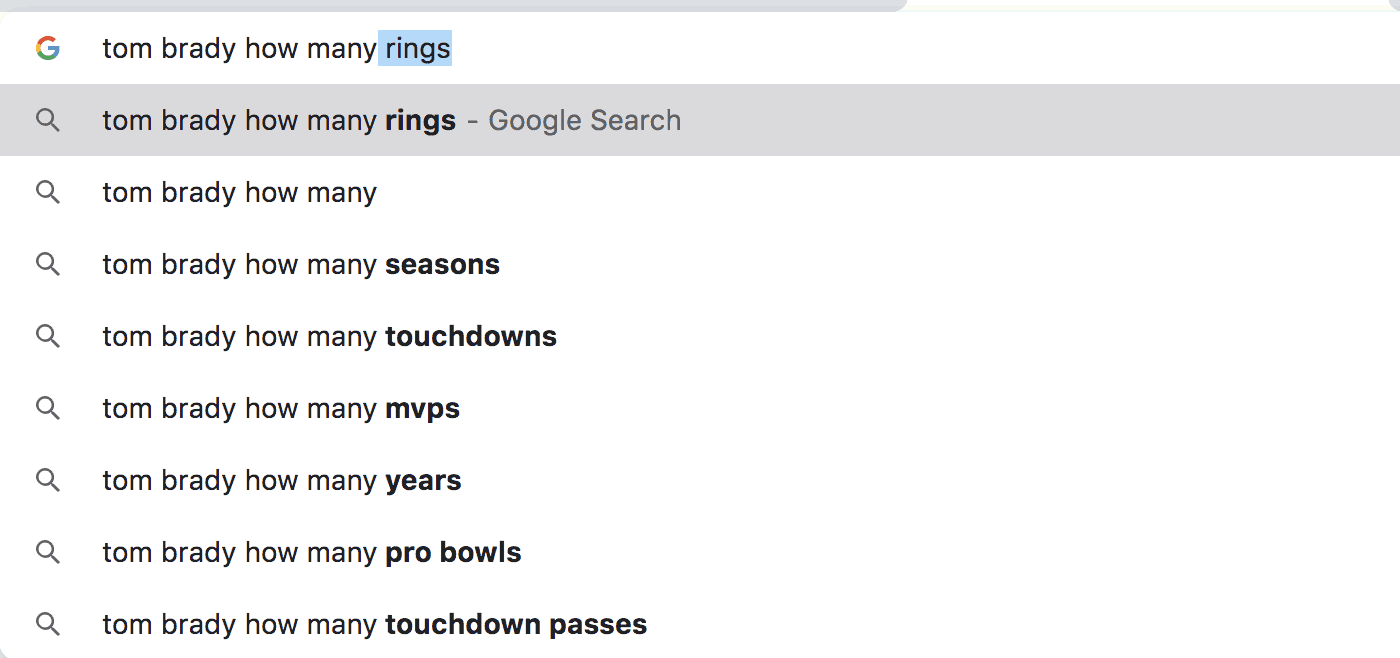We recently discussed keywords, one of the fundamental components of SEO. But SEO is ever-evolving, meaning that such components (and their respective roles) are bound to change as well. As such, intent-based algorithmic changes within Google have led to the prioritization of understanding entities over traditional keywords. But what are search entities, and why was this change necessary?
What are Search Entities?
Simply put, an entity is an ‘identifiable thing’. It could be a person, a place, a business or an object. It could be known by one of more names, or referred to by various terms, pronouns, descriptives or aliases. And most importantly, it’s likely to be commonly associated with other known entities.
Consider the association between a professional athlete, the sport they play, the team that they’re affiliated with, and that team’s geographic location. Within the context of SEO, each of these would qualify as an entity, and would allow Google to understand (and even anticipate) the intent of the user within a particular search. It’s why a search for Tom Brady would inevitably yield results associated with football, Quarterback, New England Patriots, the NFL or Gillette Stadium. Further associations might be #12, ‘The G.O.A.T., the AFC, Gisele Bundchen, Bill Belichick or Robert Kraft. Through commonly searched entities, Google gains a better understanding of each respective relationship, and can anticipate when a user is looking to learn more about each one.
For example, one user might want to know how many championships Brady has. Others might be more interested in how many seasons he’s played for. Some might even be interested in how many years he’s been married, or how many children he has. It comes down to the intent of the user and by understanding the relationship between various search entities, Google
Search Entities & You
To frame this within the context of your own user experience, search entities enable Google to predict what you might be looking for once you begin to type your query into the search bar. By viewing the entity (Tom Brady) within the context of the question being asked (How Many…) Google serves up some educated guesses as to your intent.
This is called ‘predictive search’ (commonly referred to as ‘autocomplete’) and it’s the product of machine learning. It’s also a process that has become amazingly efficient since it was first introduced back in 2004. It has empowered Google to understand the way that we speak, collectively and as individuals.
Factor in Google’s indexing of an individual’s search history, their online habits and their geographic location, and it becomes easy to appreciate why Google owns over 93% of the global search market. Not only does Google understand what we’re looking for, but it’s designed to deliver the most applicable results.
By viewing these additional auto-complete terms, we see not only what other people have previously searched, but also what other things google associates with our query, and the entity “Tom Brady”.
The Rise of Search Entities
Entity search is nothing new. It was back in 2012 that Google began to place emphasis on the relationship between real-word entities, while incorporating them as ranking signals. This shift in focus allowed Google to improve the efficiency of their ranking algorithm and, by 2015, entity metrics had become a leading influence in SERP. Considering that over 3.5 billion searches are processed each day, it’s easy to see why efficiency is so important.
But the efficiency isn’t exclusively Google’s to enjoy. Think of the Google user themselves. According to 2019 numbers, predictive search reduces typing by up to 25%. Not only does this simplify the user experience, but it helps to make that experience more satisfying.
And in terms of SEO, search entities can help you (or your digital marketing team) to better identify the valuable long-tail keywords (or entities) that can attract more traffic. By creating high-quality landing page and blog content around these entities, you’re able to better mirror user intent, increasing your value (as an authority) within the eyes of Google.
